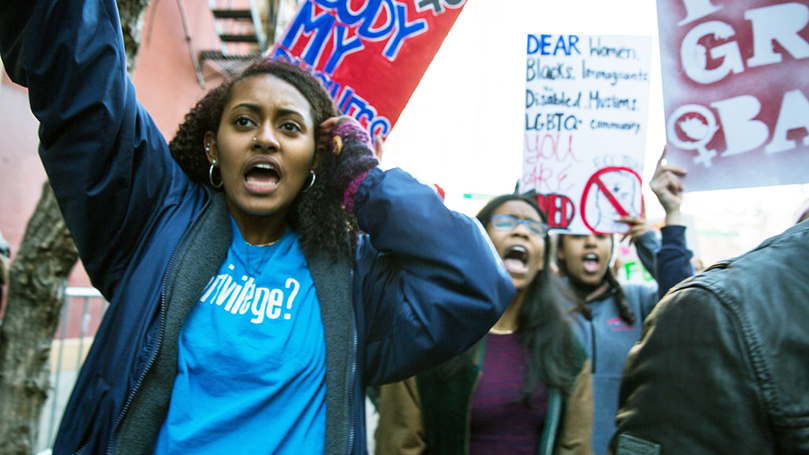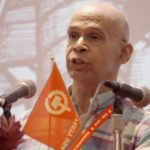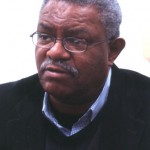
The African American national question both historically and presently is among the world’s most important democratic struggles. Brought to U.S. shores as chattel slaves by a settler colonialist republic in the throes of bourgeois democratic revolution, Africans were stripped of their indigenous languages, cultures and religions and forced to endure history’s most brutal form of slavery. This was a servitude endured in the building of industrial capitalism fueled by the plantation system where “cotton was king,” a slavery premised for the first time in human history on race and justified by religious and pseudo-scientific claims of inferiority.
A Civil War was fought over the issue of slavery; and hopes for equality promised by the Reconstruction period were soon dashed with the return to power of the former slaveocracy with the aid of Ku Klux Klan terror and northern complicity. Enforced by a new form of Black Codes, one hundred years of oppression ensued, an oppression only overcome by stiff resistance and battles for democracy in the form of equal democratic and economic rights.
The African American people, then, emerged as a racially and nationally oppressed minority within the framework of an evolving multinational bourgeois democratic republic. Confronting oppression based skin color (“race”) and a distinct national culture (“nationality”) black people faced a similar though unique experience with other people of color within the continental US, most of whom are described in Leninist terms as national minorities.
Why use the term “national minorities”? Because “oppressed nations” in Marxist terms constitute a different social entity. “Nations” are defined as peoples who share a common, language, economy, territory, psychological make up, and common culture. A common economic life and territory obviously did not obtain in the African American experience rendering the classic definition inoperable, particularly after the great migration of 6 millions black souls to work in the industrial midwest and north in the early part of the 20th century. Two of the five categories delineated above, a common language and psychological make up, were not sufficient to define black Americans as a nation.
W.E.B. Du Bois, the U.S.’s foremost African American scholar and activist, saw these issues clearly and in article entitled 100 years of Negro Freedom challenged the nation thesis directly. He wrote:
Is it a nation, a closed economy, a cultural unity or what? It is certainly not a nation, for its political power is limited and is seldom exercised as a unit. It is not a closed economy but part of the economy of the whole nation and becoming more and more integrated. It is proportionally more largely engaged in agriculture, domestic service and common labor, and that increased its dependence on the national economy.
Taking on the group economy category Du Bois continues:
There is some evidence of group economy where Black professionals, businessmen and artisans serve primarily the Black group, but it is not clear how this development is growing in comparison with the general picture. One thing is certain: the economic survival of the Black in the South depends on close union with white workers, so as to present a united front against the tremendous growth of monopoly capital in the South today.
Even on the issue of a group culture, the great theoretician contends:
This Black group inherited and has formed a group culture with some customs, language dialects and with a growing literature and other forms of art. Yet, as this goes on, there is increasing integration with the American culture until it is difficult to say how far there is today a distinct American Black culture, and in what direction it will probably grow.
Wadi’h Halabi’s argument in defense of the long abandoned self-determination policy misses these key points. Halabi argues that black people constitute a nation in Marxist terms and therefore should exercise the right of self-determination, a position challenged by Du Bois and at variance with longstanding CPUSA policy.
That the African Americans constitute a national question is not tantamount to arguing that we constitute a nation.
Advocating a policy borrowed in a mechanical form from the Soviet experience, Halabi writes: “For Marxism, a national question has specific implications. This includes the right to self-determination (separation) and to land – as territory, and as land torn from the exploiters and their state, and placed in the hands of the oppressed who would work and protect it.”
But there are many forms the national question assumes: the two primary ones are a) an oppressed nation; and b) a oppressed national minority. The former obtained in places like Czarist Russia, often described as the “prison house of nations” or on the African continent, carved up in the Berlin Conference of 1885 and occupied by European nations, or in the English occupation of Ireland.
The latter are revealed in multinational states, where within the framework of capitalist economies, national minorities are compelled to live and work within the framework of an existing common territory, economy, language, culture etc. In the U.S. this began with occupation by European powers of Native American lands and slavery and continues with the migration of Latino immigrants from central America, Mexico and other countries compelled by deep poverty and oppression. Similar circumstances are arising in a number of European countries due to the influx of migrant labor from the Middle East, Africa, and the Carribean.
Halabi conflates the terms “nation” with “national minority” leading him to mistake after mistake in analyzing the unique features of the African American and other people of color’s experience in the U.S.
In addition, he compares the situation of African Americans to the Palestenian experience in circumstances that are completely different. Palestine in fact constituted a nation as defined in classic terms – Black Americans did not. Palestinians were ejected from their land – African Americans were enslaved and brought to another country.
He admits that the Comitern made a mistake by including territory in its self-determination claim but is unable to see that this weakens instead of strengthens his argument, writing “the Comintern resolutions erred by tying the Black national question to the ‘Black Belt’, regions in the South with majority Black population.”
Comrade Halabi continues: “But what defines the Black national question is the searing experience of kidnapping from Africa, enslavement – and the unending oppression and discrimination since “emancipation”.
But what defines the Black national question as Du Bois has demonstrated is not only oppression but the specific forms the oppression that African Americans as a people and workers experience, first as slaves, then sharecroppers, and finally as an overwhelmingly working-class population.
In this process African Africans both historically and today have expressed what they consider to be the main forms of their freedom fight (i.e. their self-determination) as the demand for complete and unconditional equality within the framework of the U.S. bourgeois democratic republic.
This was done in the first place by joining the Civil War against slavery, a decision that turned the tide in the favor of the Union forces. Indeed let’s recall Frederick Douglass’ words to Lincoln when faced with the president’s call for repatriation of black Americans to Africa. Calling it a “silly idea Douglass .. says the President of the United States has become an ‘itinerant colonization preacher, who has made himself look ridiculous by pitching this idea that we should leave the nation of our birth.”
Consider that decade after decade thereafter the fight for Afrian American freedom was defined by combating Jim Crow segregation and systemic institutionalized racial oppression in every area of life. And all of this by voting, boycotts, sit-ins, occupations, strikes, in unity with any and all who join in this effort, particularly the labor movement.
It’s true that nationalist and even separatist sentiment arises, particularly in periods when oppression is severe and white allies fail to respond as in the case of the 1920’s and the Garvey movement.
It’s also true that in periods of labor and democratic struggle, as during the 30’s and 60’s and today, unity trends predominate.
Can equality be achieved under capitalism? The answer is that the struggle for equality will determine whether or not socialism is achieved. Why? Because the unity of the working class depends on addressing today – and not tomorrow – the demands of all sections of the class – that means fighting racism.
And this is where the future lies, as Du Bois predicted: in unity with white workers against the power of monopoly capital. We would only add – in unity with all workers.



 Join Now
Join Now